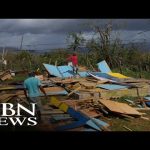On October 28, 2025, a cargo truck hauling rhesus monkeys overturned on Interstate 59 near Heidelberg in Jasper County, Mississippi — a scene that could have become a public-health disaster if local responders hadn’t moved quickly. The image of crates torn open and primates running along the shoulder is the kind of chaos Americans are right to fear when we let labs and corporate shippers operate with little public oversight.
The Jasper County Sheriff’s Office warned the animals were “aggressive” and initially told the public the monkeys carried hepatitis C, herpes and COVID, prompting urgent warnings to avoid the area and orders that escaped animals be shot if they left the wreck site. Those are not the sort of risks people should be blithely reassured about; when your sheriff publicly raises the alarm, you have to take it seriously.
Tulane University quickly pushed back with a statement saying the primates were not infected and disputing ownership and exposure claims, illustrating the confusion between local officials and big institutions in the immediate aftermath of an accident. Americans deserve to know which organization was responsible for these animals, who transported them, and why we weren’t given a clear chain of custody before the situation became dangerous.
Local law enforcement and wildlife officials say all but one of the 21 monkeys were either recaptured or destroyed as teams worked the scene, and a lone animal remained unaccounted for as the search continued. Faced with an unknown animal potentially carrying diseases and acting aggressively, the sheriff’s hardline approach prioritized protecting citizens — and frankly, that’s what we want our lawmen to do.
This incident raises uncomfortable questions about the routine movement of research animals across state lines and how much transparency taxpayers and local communities are given. Reports show confusion over ownership and destination, which is unacceptable when public safety is on the line and when private or academic entities are involved in risky transports.
Let’s be clear: protecting human lives must come first, and I support the decisive action taken by the sheriff and wildlife officers to stop a potential spreading threat. That said, this should be a wake-up call — not yet another story where bureaucracies and university press releases try to smooth over their errors while local citizens clean up the aftermath.
Washington and state capitols should act: require stricter transport rules, mandatory disclosure when potentially hazardous biological materials or animals are on the road, and immediate local notification protocols so communities aren’t left in the dark. If institutions want the liberty to run labs and move animals for research, they must accept the responsibility that comes with it.
Americans who work hard and play by the rules expect authorities to protect them, and they deserve straight answers now about who was responsible, what the animals were exposed to, and what steps will be taken to prevent another close call. Until we get those answers, citizens should remain skeptical of reassuring statements from distant universities and demand real accountability from the people who put our towns at risk.




